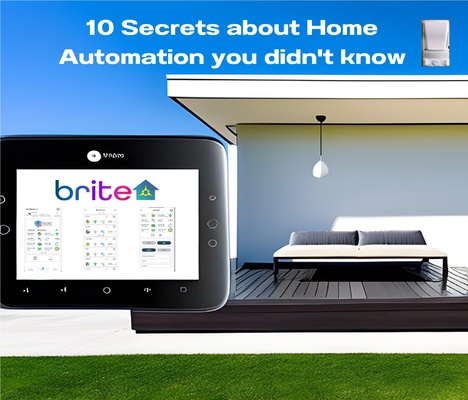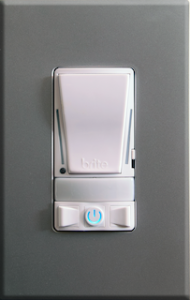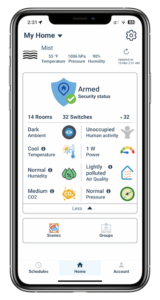10 secrets about home automation you didn't know
Sankesha Borde
Nuro Technologies

Changes happening around in today’s world are shortening our distance from the amazing life we are heading to. Brite Home AI switch works as a guard which gives the assurance of your personal security and prioritizes the health condition of your home. We constantly think about our customer’s benefits and how we can help this new technology push their life to Bring your dream home experience to life with this AI switch. Turn your home smart with these AI switches.
Automating your home lifts the living in profound. The United States indeed held a dominant position in artificial intelligence development, with several tech giants leading AI research and innovation. Companies like Google (owned by Alphabet Inc.), Facebook (now Meta Platforms Inc.), Microsoft, Amazon, Apple, and other major tech players have been at the forefront of AI-driven research and development.
While I don’t have access to information beyond September 2021, I can still speculate on potential future developments and secrets in the field of home automation based on trends and emerging technologies. Keep in mind that these are speculative and may or may not become reality in the future:
Artificial Intelligence Enhancements: Home automation systems could become even smarter by utilizing advanced AI algorithms to better understand user preferences, anticipate needs, and optimize energy usage.
Predictive Maintenance: Future home automation systems might use sensors and AI to predict when appliances and systems need maintenance or repairs, helping homeowners address issues before they become major problems.
Automation continues to operate even if the internet goes down.
Whole house security with built-in intrusion deterrence utilizing light strobing and beeping
Emotionally Aware Environments: Future systems could incorporate emotion recognition technology to create environments that respond to occupants’ emotions, adjusting lighting, music, and ambiance accordingly.
Advanced Biometrics: Home automation systems might incorporate advanced biometric authentication methods, such as facial recognition and voiceprints, to enhance security and personalize user experiences.
Integrated Health Monitoring: Automation systems could expand to monitor occupants’ health, tracking vital signs and sleep patterns to provide insights and recommendations for improved well-being.
Seamless Integration with Smart Cities: As smart city infrastructure grows, home automation systems could become seamlessly integrated with broader urban networks, allowing for more efficient resource management and services.
Dynamic Spatial Reconfiguration: Homes of the future could feature modular layouts that can dynamically reconfigure based on user needs and preferences, with automation playing a key role in adjusting room layouts and functionalities.
Sustainable and Eco-Friendly Features: Home automation could focus more on sustainability, utilizing renewable energy sources, optimizing energy consumption, and even facilitating smart waste management within the home.




